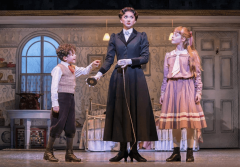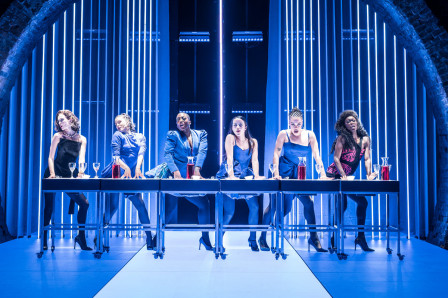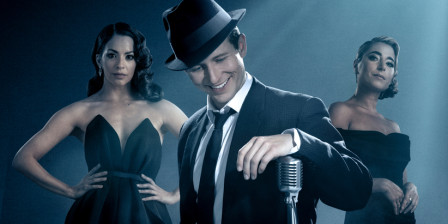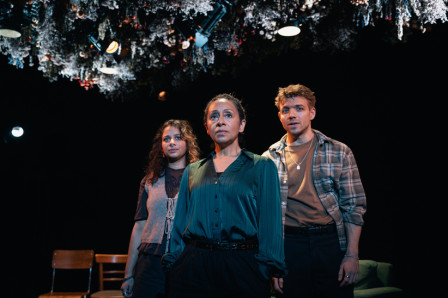From Page to Stage: MARY POPPINS
 Josephine Balfour-Oatts
19 December, 2019, 17:59
Josephine Balfour-Oatts
19 December, 2019, 17:59
 This week, we talk to up-and-coming author and well-known Bookstagrammer Charlie Rosse (@theroamingreader), on the stage production of P.L Travers beloved novel Mary Poppins at the Prince Edward Theatre. Here’s why this book-based adaptation is worth booking.
This week, we talk to up-and-coming author and well-known Bookstagrammer Charlie Rosse (@theroamingreader), on the stage production of P.L Travers beloved novel Mary Poppins at the Prince Edward Theatre. Here’s why this book-based adaptation is worth booking.
Originally a series of eight books, P. L Travers’ Mary Poppins is now a household name. Written across the years 1934-1988, the novels follow the eponymous magical nanny and her impact upon the lives of her charges. Literary success soon drew the attentions of one Walt Disney, with a film version of Mary Poppins screened in 1964. It is a notably more manicured interpretation of Travers’ protagonist, with the character of Mary (played by Julie Andrews) made of a lighter, brighter fabric than that of the woman described on the page.
Rumour has it, that Travers’ was hugely disdainful of Disney’s creative licence – particularly in regards to the soundtrack and use of animation. However, what frustrated her most was the diluting of Poppins’ harsher characteristics. “She was never meant to be a cushty-grandmother-y type of nanny, she was always meant to push the children to be better; to be blunt and unforgiving of their faults; their parents’ faults.” Charlie Rosse concurs, spiritedly. “Importantly, she has magic and through this, one can connect with the darker elements painted by Travers during the stage show.”
The stage musical adaptation first opened in the West End in 2004, and on Broadway in 2006. “It has a big set – lots of colours, lots of effects,” Rosse continues, “the most special effects I think I’ve seen in any production! It is exactly how P.L Travers’ describes it.” Younger members of the audience too, seemed enchanted by the action: “100%. The children sitting beside me and behind me were totally engaged by the magic of it – completely spellbound.”
This then, is a testament to producer Cameron Mackintosh’s translation. Rosse agrees, her voice lit up in delight: “The show is a better representative of [Travers’] story, particularly regarding the characteristics of Mary Poppins.” She also observes a fragment found in the play’s programme – a letter addressed to Mackintosh from Travers’ adopted son, Camillus. “He thought [the stage show] was a better representative of Mary Poppins and of his mother as well” Rosse adds, “so you know [Mackintosh] has done something right!”
Which leaves a burning question. Of the three, which mode provides the most favourable experience: the books, film or stage play? Rosse deliberates, vowel sounds stretching. “I would probably go with the show.” She says, finally. “I thought it was such a good visual representation of the books. It was magical and left me feeling so inspired and uplifted. It just makes you happy – I loved it, I really did.”
Latest News

 AMERICAN PSYCHO announces extension to London run
3 February 2026 at 14:03
AMERICAN PSYCHO announces extension to London run
3 February 2026 at 14:03

 London Theatre Shows To Watch This February Half-Term (The 2026 Edition)
3 February 2026 at 11:01
London Theatre Shows To Watch This February Half-Term (The 2026 Edition)
3 February 2026 at 11:01

 Joel Harper Jackson to play Sinatra in SINATRA THE MUSICAL
3 February 2026 at 10:13
Joel Harper Jackson to play Sinatra in SINATRA THE MUSICAL
3 February 2026 at 10:13

 Review: MAGGOTS at Bush Theatre
3 February 2026 at 09:40
Review: MAGGOTS at Bush Theatre
3 February 2026 at 09:40